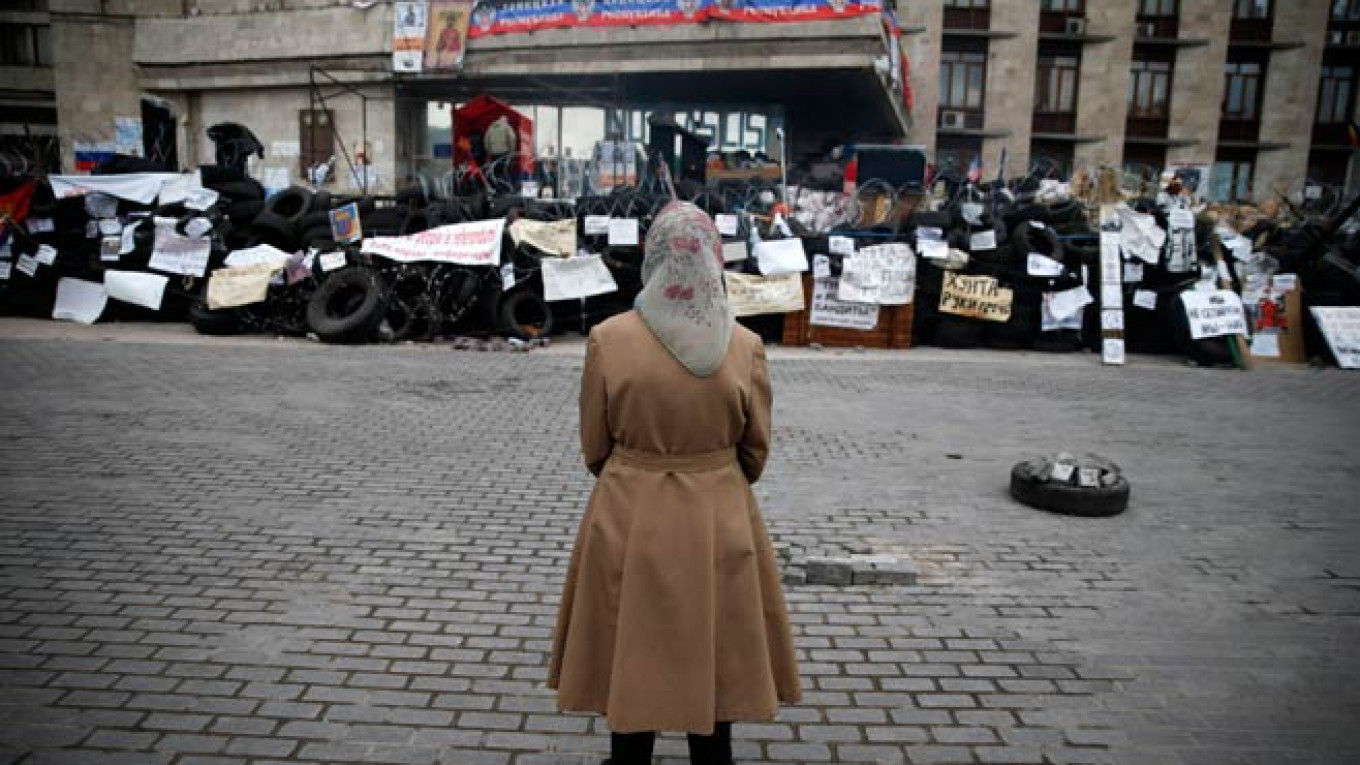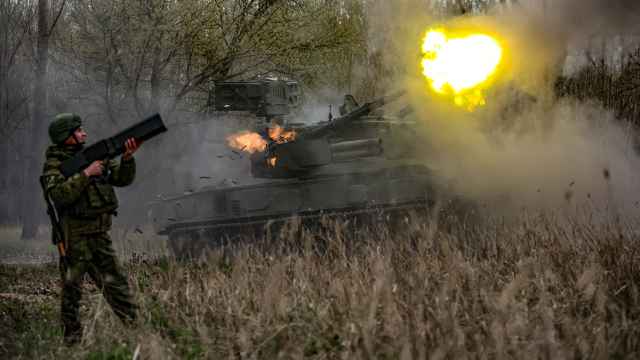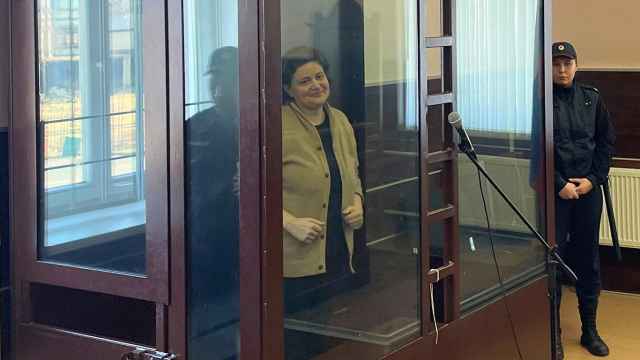When President Vladimir Putin described Donetsk as "Novorossia" in his call-in show late last week and stressed the region's ties to Russia, he left out the fact that the region's capital was actually founded by a Welsh engineer and entrepreneur named John Hughes.
"This is Novorossia: Kharkov, Luhansk, Donetsk, Kherson, Mykolaiv, Odessa did not belong to Ukraine in tsarist times," Putin said. "All these territories were transferred to Ukraine in the 1920s by the Soviet government. God knows why."
But what exactly is Donbass, where armed separatists are so determined to create their own autonomous state?
The area over which Russia and Ukraine have locked horns for the past several weeks has an especially complex history, one that may be unknown even to the separatists touting a "People's Republic of Donetsk" who have captured government buildings and hoisted the self-proclaimed autonomy's red, black and blue flag on their masts.
Hughes left his mark on Donbass after receiving permission from the Russian tsarist government in 1868 to develop metal works there, and a year later he founded the area as Yuzovka — derived from the Russian pronunciation of Hughes' name. It was later renamed Donetsk.
The term "Novorossia" goes back even further and denotes territory of modern-day southeastern Ukraine that was conquered by the Russian Empire from the Crimean Khanate and Ottoman Turkey in the 18th and 19th centuries.
The word Donetsk refers to the Donetsk coal basin, which stretches roughly from the Dnipropetrovsk region in Ukraine to the Rostov region in Russia. It is also just one of many terms for areas of modern-day southeastern Ukraine and southwestern Russia with roots in different historical periods, from the 16th century to the Soviet era.
"This is an industrial, proletarian area, whose identity is based on it," said Viktor Mironenko, head of the Moscow-based Center of Ukrainian Studies. "I would call it Soviet more than anything else."
But the borders and historical definition of Donbass are not so clear-cut. In the centuries before heavy industrialization, Donbass was the site of numerous wars, with borders redrawn many times.
In the 16th century, a state known as Zaporizhian Sich dominated the western part of Donbass until being gradually absorbed into Russia by the late 18th century. Ruled by the Tatar Khans, the Crimean Khanate stretched from Crimea all the way to central Russia until Russian conquest in 1783.
In the north, around modern-day Kharkiv, a region known as Sloboda Ukraine was prominent in the 17th and 18th centuries. Cossacks held sway over parts of eastern Donbass until 1918.
Activists in Donetsk interviewed by The Moscow Times emphasized different parts of this complex history depending on their political affiliation.
Artur Rodnyanenko, Donetsk leader of the Ukrainian nationalist Svoboda party, noted the historical presence of the proto-Ukrainian Zaporizhian Sich state that existed before merging with Russia.
"Common culture and history is what unifies Donetsk with Odessa, Lviv and Kiev," Rodnyanenko said. "People spoke Ukrainian and wore Ukrainian cloth here before 1933, when the area was Russified."
But Lyudmila Gordeyeva, the head of an organization representing the Russian population in Donetsk, called the area "historically Russian."
"The Bolsheviks included these historically Russian areas into Ukraine to mitigate Ukrainian nationalism west of Kiev," Gordeyeva said.
Donbass became more unified in the mid-19th century with the start of industrial development, when mines and factories began to appear.
After the Russian Revolution, the area was included in the short-lived Donetsk-Krivoy Rog Soviet Republic, which the current protesters claim is a historical precedent for the area's independence. In 1922, the Soviet government made it part of the Ukrainian Soviet Socialist Republic.
During Soviet times, the area was the site of an industrialization project that provided vital resources for newly built factories around the country. But after the Soviet Union collapsed in 1991, industrial links were broken, leading to urban degradation and economic decline.
"The reason why people are protesting is because the industry there is in such decay, which has made them lose all hope for their future," said Mironenko, of the Center of Ukrainian Studies.
Some of the protesters cite political freedom as being paramount, however, echoing Kremlin propaganda about the need for independence from a "fascist" regime in Kiev.
"We are the flagship of Ukraine's southeast," said Yekaterina Gubaryeva, who identified herself as the foreign minister of the Donetsk republic, by telephone. "Other regions do not want the Kiev fascist junta to manage them too and will follow our example."
The new autonomy appears confident despite a lack of recognition by the international community — and with slim chances that such recognition will ever come.
In a statement Friday, the republic said: "Victory will be ours!"
Contact the author at i.nechepurenko@imedia.ru
A Message from The Moscow Times:
Dear readers,
We are facing unprecedented challenges. Russia's Prosecutor General's Office has designated The Moscow Times as an "undesirable" organization, criminalizing our work and putting our staff at risk of prosecution. This follows our earlier unjust labeling as a "foreign agent."
These actions are direct attempts to silence independent journalism in Russia. The authorities claim our work "discredits the decisions of the Russian leadership." We see things differently: we strive to provide accurate, unbiased reporting on Russia.
We, the journalists of The Moscow Times, refuse to be silenced. But to continue our work, we need your help.
Your support, no matter how small, makes a world of difference. If you can, please support us monthly starting from just $2. It's quick to set up, and every contribution makes a significant impact.
By supporting The Moscow Times, you're defending open, independent journalism in the face of repression. Thank you for standing with us.
Remind me later.






